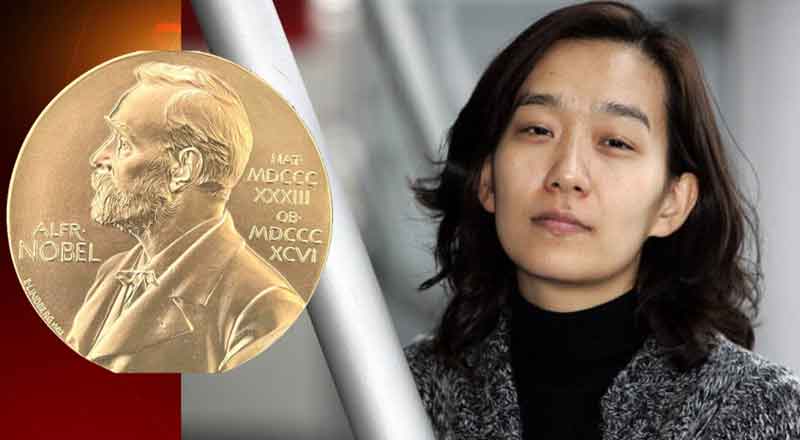Nobel Prize in Literature 2024 Awarded to South Korean Author Han Kang for Her Poetic Exploration of Human Fragility
Importance of the Nobel in Literature
The Nobel Prize in Literature, established in 1901 by Swedish chemist Alfred Nobel, is widely regarded as one of the most prestigious honors in the literary world. It recognizes authors whose work has conferred the greatest benefit to humanity by exploring profound human experiences through storytelling. The award highlights literature’s power to illuminate historical, cultural, and personal truths, fostering empathy and understanding.
Han Kang’s Literary Triumph
The 2024 Nobel Prize in Literature has been awarded to South Korean author Han Kang for her “intense poetic prose that confronts historical traumas and exposes the fragility of human life.” The Nobel Committee praised her ability to merge poetic sensitivity with vivid prose, bringing to light stories of human suffering and resilience. This recognition cements her status as an influential voice in contemporary literature.
A Poetic Journey: From South Korea to Global Recognition
Born in 1970 in Gwangju, South Korea, Han Kang grew up in a literary household, as her father was also a novelist. She made her debut in the world of poetry in 1993 by publishing a collection of poems in Literature and Society. The following year, she won the Seoul Shinmun Spring Literary Contest with her short story Red Anchor, marking the beginning of her prolific prose career. By 1995, she had published her first short story collection, Love of Yeosu.
Kang’s distinctive voice and ability to connect physical and emotional experiences were clear from the start. Her works have been lauded for their deep empathy and emotional intensity, often reflecting Eastern philosophical views. These themes were further explored in her internationally acclaimed novel The Vegetarian (2007), which earned her the International Booker Prize in 2016. The novel, structured in three parts, delves into the psychological and societal fallout when the protagonist, Yeong-hye, refuses to consume meat. The work is a striking metaphor for rebellion against societal norms and the consequences of nonconformity.
Recent Works and Continued Success
In recent years, Han Kang has continued to leave an indelible mark on the global literary stage. Her most recent novel, I Do Not Bid Farewell, won the prestigious Medicis Prize in France in 2023, followed by the Emile Guimet Prize in 2024. This novel, like much of her previous work, engages deeply with themes of loss, grief, and survival. Her prose is increasingly metaphorical, exploring the delicate balance between life and death.
Nobel Prize Recognition
Han Kang’s Nobel Prize win marks a historic moment as she becomes the first South Korean writer to receive this honor. The Swedish Academy highlighted her ability to give voice to the unspeakable by confronting historical traumas and offering insights into the fragility of existence. Her work is distinguished by a unique interplay between mental and physical suffering, often told with a lyrical sensitivity that blurs the boundaries between prose and poetry.
A Legacy of the Nobel Prize
Since its inception in 1901, the Nobel Prize has been awarded to individuals and organizations that have made significant contributions to humanity in fields such as science, literature, and peace. It was created according to the will of Alfred Nobel, the inventor of dynamite, who sought to leave a legacy that celebrated human achievement. Each year, the prize recognizes individuals whose work transcends boundaries and transforms our understanding of the world.
Han Kang now joins a distinguished list of laureates, including last year’s winner, Norwegian author Jon Olav Fosse, and other literary giants whose work has shaped global literature. The award includes a prize of 10 million Swedish krona ($915,000), underscoring the magnitude of this achievement.
(With inputs from agencies)





